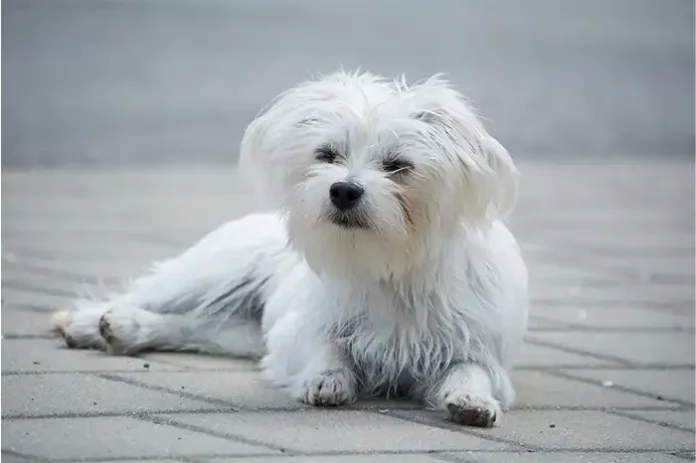Bringing a small dog into your home is an exciting and joyful experience, but it also comes with a unique set of challenges and responsibilities. Small dogs have specific needs that differ from those of larger breeds, and ensuring their comfort, safety, and happiness requires careful preparation.
One of the first things you should consider when preparing for your new pet is a wireless dog fence for small dogs. This device helps keep your small dog safe by setting boundaries without the need for a traditional fence. In this article, we’ll explore the essential items you need to purchase for small dogs, how to spend quality leisure time with them, and the accessories that will help you provide the best care for your tiny companion.
Preparing for your Small Dog: What to Buy First
When you bring a small dog into your home, having the right supplies ready is crucial for their comfort and safety. These items will help your new dog settle in and ensure they feel secure and loved from the moment they arrive.
1. Wireless Dog Fence for Small Dogs
A wireless dog fence for small dogs is an excellent tool for keeping your pet safe while allowing them the freedom to explore your yard. Unlike traditional or invisible fences, a wireless fence for your pet uses a central transmitter that creates a circular boundary around your home. The dog wears a collar that communicates with the transmitter, alerting them with a beep or a mild static correction if they approach the boundary. This system is particularly well-suited for small dogs, as it offers a gentle yet effective way to keep them within safe limits without the need for a bulky physical barrier.
This type of fencing is ideal if you have a small yard or live in an area where installing a traditional fence is not feasible. It allows your dog to enjoy the outdoors safely and gives you peace of mind that they won’t wander off into potentially dangerous areas.
2. Small Dog Bed
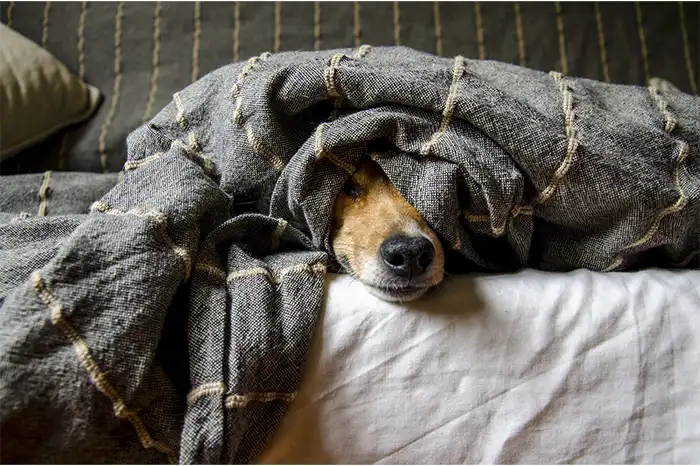
Small dogs appreciate a cozy, warm space to rest and sleep. A bed that is appropriately sized for your dog will provide them with a sense of security. Look for beds with soft, supportive padding that can accommodate your dog’s sleeping habits—whether they like to curl up or stretch out. Some small dogs also enjoy beds with raised edges, which offer additional comfort and a place to rest their heads.
3. Collar and Leash
For small dogs, it’s important to choose a collar that is lightweight and fits comfortably around their neck. A collar that is too heavy or too tight can cause discomfort or injury. Be sure to attach ID tags with your contact information to the collar, which is essential in case your dog ever gets lost. Additionally, a leash designed for small dogs should be light and easy to handle, providing control without adding unnecessary weight.
4. Harness
Many small dog owners prefer using a harness instead of a collar, particularly for walks. A harness distributes pressure more evenly across the dog’s body, reducing the risk of neck injury—an important consideration for small breeds, which are often more delicate. Choose a harness that fits snugly but comfortably and is easy to put on and take off.
5. Food and Water Bowls
Small dogs require bowls that are appropriately sized for their stature. Stainless steel or ceramic bowls are ideal due to their durability and ease of cleaning. For small dogs, it’s also important to choose shallow bowls that they can easily reach. Non-slip bases can help prevent the bowls from sliding around as your dog eats or drinks.
6. Quality Dog Food
Choosing the right dog food is crucial for your small dog’s health. Small breeds often have faster metabolisms and may require a diet that is higher in calories and nutrients than food designed for larger breeds. Consult your veterinarian to find a high-quality food that meets your dog’s specific dietary needs, taking into account their age, activity level, and any health concerns.
Read More: Can Dogs Eat Chicken Bones
7. Grooming Supplies
Regular grooming is essential for small dogs, especially for breeds with long or curly coats. Basic grooming supplies for a small dog include a brush or comb suitable for their coat type, dog-friendly shampoo, and nail clippers. Small dogs often need more frequent grooming than larger breeds, so it’s important to establish a grooming routine early on to keep their coat and skin healthy.
8. Crate
A crate provides a safe, secure space for your small dog, especially during house training. It can also serve as a comfortable retreat where your dog can relax and feel protected. When selecting a crate, make sure it’s large enough for your dog to stand up, turn around, and lie down comfortably, but not so large that they feel overwhelmed.
9. Toys and Chews
Toys are essential for keeping your small dog entertained and mentally stimulated. Choose toys that are appropriately sized for your dog’s small mouth and teeth. Soft toys, squeaky toys, and chew toys are all great options. Chew toys, in particular, are important for teething puppies and can help keep their teeth clean. Interactive toys that dispense treats can also provide mental stimulation and prevent boredom.
Spending Quality Time with Your Small Dog: Leisure Activities
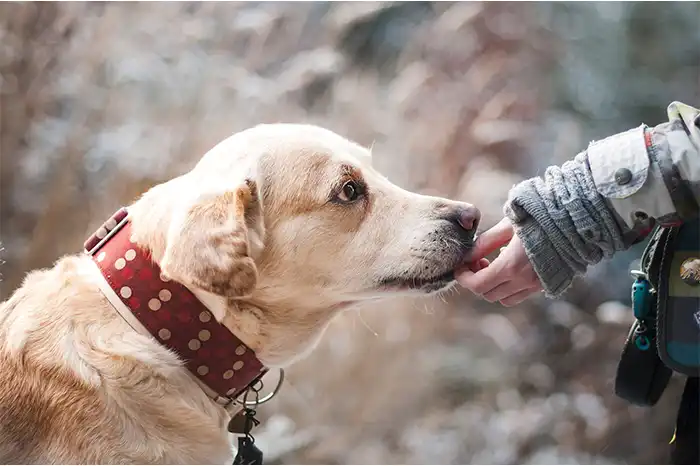
Building a strong bond with your small dog involves spending quality time together through various activities. These moments are not only enjoyable but also crucial for your dog’s emotional and physical well-being.
1. Daily Walks
Despite their small size, regular walks are important for keeping your dog healthy and happy. Walks provide exercise, mental stimulation, and an opportunity for socialization. Make sure the walks are suited to your dog’s energy level; small dogs often tire more quickly than larger breeds, so shorter, more frequent walks may be more appropriate.
2. Playtime
Playtime is essential for small dogs, as it helps burn off energy and keeps them mentally engaged. Interactive games like fetch or tug-of-war are great options. However, be mindful of your dog’s size and strength when choosing toys and playing games. Always opt for toys that are designed for small breeds to prevent choking hazards.
3. Training Sessions
Training sessions are a great way to bond with your dog while teaching them important commands and good behavior. Small dogs can sometimes develop “small dog syndrome,” where they believe they are in charge. Regular training helps reinforce your role as the leader and keeps your dog well-behaved. Use positive reinforcement techniques such as treats and praise to encourage good behavior.
4. Cuddle Time
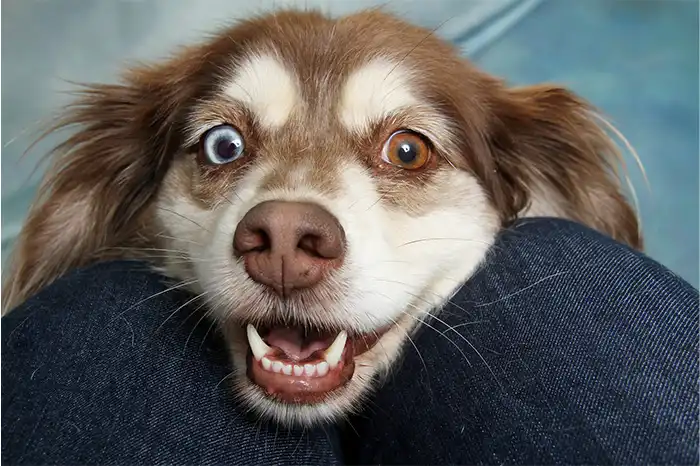
Small dogs often love to cuddle and spend time with their owners. Whether it’s snuggling on the couch or napping in your lap, these moments help strengthen the bond between you and your dog. Make sure to set aside time each day for cuddling, which provides comfort and reassurance to your small companion.
5. Socialization with Other Dogs
Socialization is important for dogs of all sizes, but it’s especially crucial for small dogs, who can sometimes be more timid or nervous around other animals. Arranging playdates with other dogs or visiting a dog park can help your dog become more comfortable in social situations. Always supervise interactions with larger dogs to ensure your small dog feels safe and isn’t overwhelmed.
Small Dog Essentials: Accessories to Buy for your Cute Dog
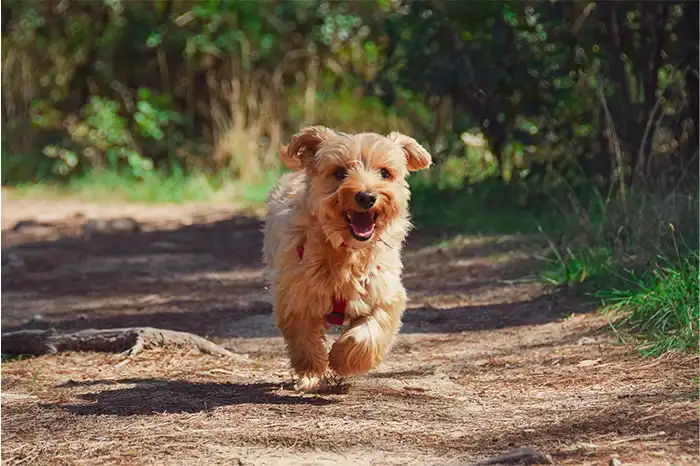
In addition to the basics, there are several small dog essentials that can enhance the quality of life for your cute dog and make your daily routine more convenient.
1. Pet Carrier
A pet carrier is a must-have for small dogs, especially if you plan to travel with them. Whether you’re going on a short trip to the vet or a longer journey, a carrier provides a safe and secure space for your dog. Look for carriers that are well-ventilated, comfortable, and appropriately sized for your dog. Some carriers are designed to be worn as backpacks or shoulder bags, making it easier to carry your small dog hands-free.
2. Clothing
Small breed dogs can be more sensitive to cold weather due to their size. Dog sweaters, jackets, and booties can help keep them warm during winter walks. Make sure the clothing fits well and doesn’t restrict your dog’s movement. In addition to warmth, dog clothing can also protect your dog from the elements, such as rain or snow.
3. Stairs or Ramps
Small dogs often have difficulty reaching higher places, such as beds or sofas. Pet stairs or ramps can make it easier for your dog to access these areas without risking injury from jumping. These accessories are especially useful for older dogs or those with joint issues.
4. Interactive Toys
Interactive toys, such as treat-dispensing puzzles, are great for keeping small dogs mentally stimulated. These toys challenge your dog to solve problems and are a fun way to provide enrichment, especially when you’re not able to actively engage with them.
5. Dental Care Items
Small dogs are prone to dental issues, so it’s important to include dental care in their routine. Dental chews, toothbrushes, and toothpaste designed for dogs can help keep their teeth clean and prevent plaque buildup. Regular dental care not only keeps your dog’s mouth healthy but also contributes to their overall well-being.
Conclusion
Caring for a small dog requires thoughtful preparation and the right accessories to ensure they thrive in their new home. From the initial purchase of a wireless dog fence for small dogs to keep them safe, to selecting the perfect bed, harness, and toys, every detail matters when it comes to your small dog’s comfort and happiness.


